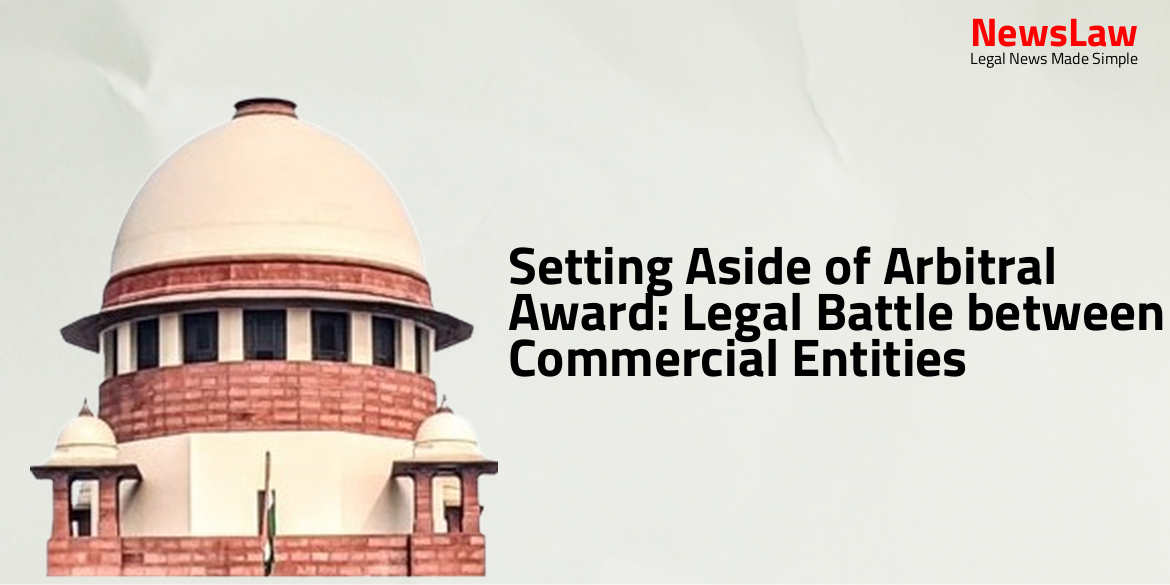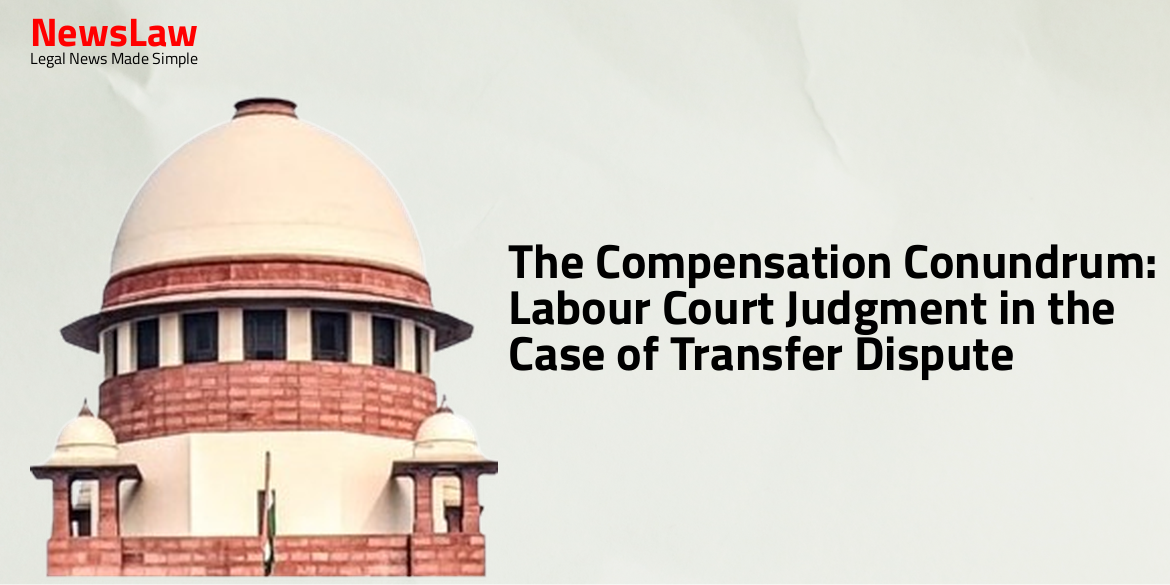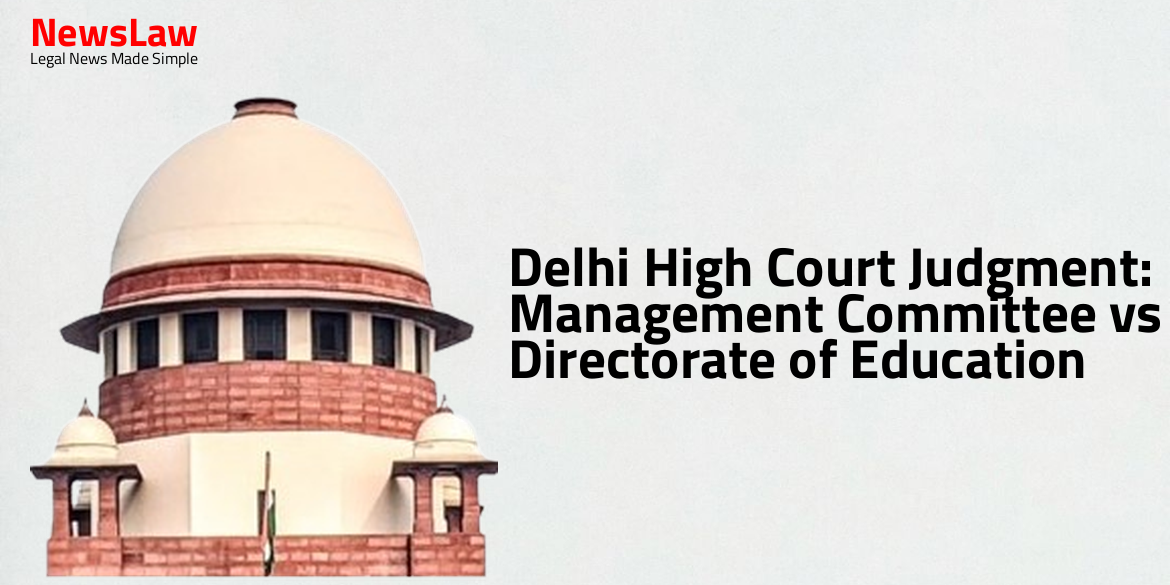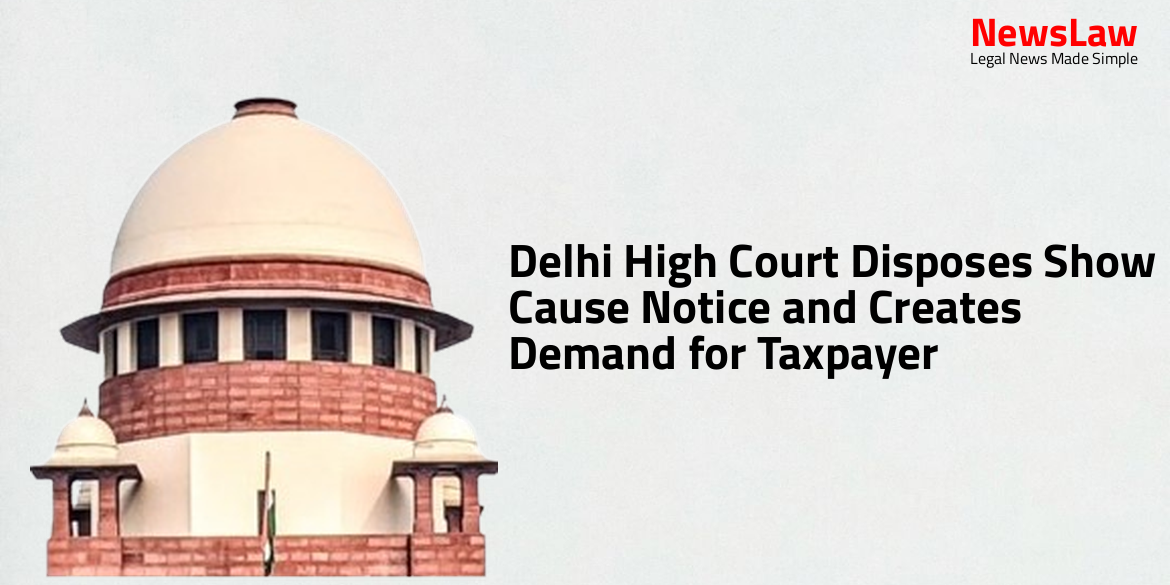In a recent judgment by the Delhi High Court, a legal battle between two commercial entities unfolded regarding the setting aside of an arbitral award. The Court’s decision sheds light on crucial aspects of arbitration law and underscores the importance of procedural compliance in such cases. Stay tuned for insights into the intricacies of commercial disputes and legal justice.
Facts
- The appellant filed an application under Section 34 of the A&C Act challenging the impugned award dated 15.02.2022.
- The application was dismissed as it was beyond the period of limitation specified in Section 34(3) of the A&C Act.
- The delay exceeded the 30-day limit that could be condoned as per the proviso to Section 34(3) of the A&C Act.
- The impugned award was considered the first filing according to the learned Single Judge.
Issue
- The limited controversy in this case is whether the application to set aside the award filed by the appellant on 01.06.2022 can be considered valid.
- The appellant filed a 95-page document without bookmarking or paying the appropriate court fees along with the application.
- The key issue is whether the non-compliance with court rules regarding bookmarking and court fees affects the validity of the application to set aside the award.
Arguments
- Learned counsel for the respondent referred to the decision in Brahmaputra Cracker and Polymer Ltd. v. Rajshekhar Construction Pvt Ltd.
- The Court observed that filing a petition under Section 34 of the A&C Act without the Statement of Truth or the award should not be accepted lightly as it may impede the proceedings under the A&C Act.
- Court mentioned that such attempts should be discouraged and disapproved.
- An appeal has been filed against the said decision and is pending for consideration.
- The learned counsel for the respondent also cited the decision in Oil and Natural Gas Corporation Limited v. Planetcast Technologies Limited.
- The learned Single Judge noted the decision in Oil and Natural Gas Corporation Ltd. v. Joint Venture of M/s Sai Rama Engineering Enterprises & M/s Megha Engineering & Infrastructure Limited, and opined that the petition should be dismissed.
Analysis
- The application under Section 34 of the A&C Act must set out the grounds for setting aside the arbitral award.
- The application in this case clearly articulated the grounds for challenging the award.
- The defect of not filing the Statement of Truth may be curable.
- The application was comprehensive and capable of adjudication despite the missing Statement of Truth.
- The Commercial Courts Act requires verification of pleadings in the form of a Statement of Truth.
- The Court may strike out pleadings that are not verified by a Statement of Truth.
- Filing an affidavit in support of an application is a procedural requirement.
- The filing should be accompanied by a duly executed vakalatnama.
- Failure to comply with procedural requirements does not render the application non est.
- The filing not being accompanied by a Statement of Truth does not make the application non-est.
- The application must be signed by the party or its authorized representative.
- Every pleading in a commercial dispute must be verified by an affidavit.
- The application should be accompanied by a copy of the arbitral award for proper consideration of the grounds for setting it aside.
- Interpretation of statutes in relation to the nature and form of verification of pleadings is crucial.
- A strict interpretation can lead to hardships, inconvenience, and disrupt justice dispensation.
- A strict interpretation was not applied as it would create palpable hardships and derail justice.
- The Court allowed the appeal against the decision of the learned Single Judge in the case referred to.
- The decision emphasized the need for a practical approach in interpreting legal requirements.
- The Court may strike out a pleading if it is not verified by a Statement of Truth.
- The affidavit mentioned in the Appendix to the Schedule serves as the Statement of Truth.
- An affidavit must be signed by the party or a person acquainted with the facts of the case and authorized by the party.
- Filing a petition solely to stall the limitation without meeting the requirements to be considered an application for setting aside an arbitral award should be discouraged.
- Non-filing of the statement of truth along with the petition does not render the petition non-existent in the eyes of the law.
- The defect of not filing the Statement of Truth is curable.
- Non-filing of the Statement of Truth does not make the filing non-existent in the eyes of the law.
- Filing the Statement of Truth is not explicitly stated as mandatory, but its absence should not be construed as acceptable.
- There is an unreasonable delay in re-filing the application.
Decision
- Pending application disposed of
- Parties to appear before concerned bench for directions on 02.07.2024
- Delay in refiling to be considered by learned Single Judge
- Application [OMP(COMM)373/2022] restored before learned Single Judge
Case Title: KAILASH CHAND GIAN CHAND JAIN Vs. UNION OF INDIA THROUGH MINISTRY OF RAILWAYS (NORTHERN) (2024:DHC:3815-DB)
Case Number: FAO(OS) (COMM)-300/2022



